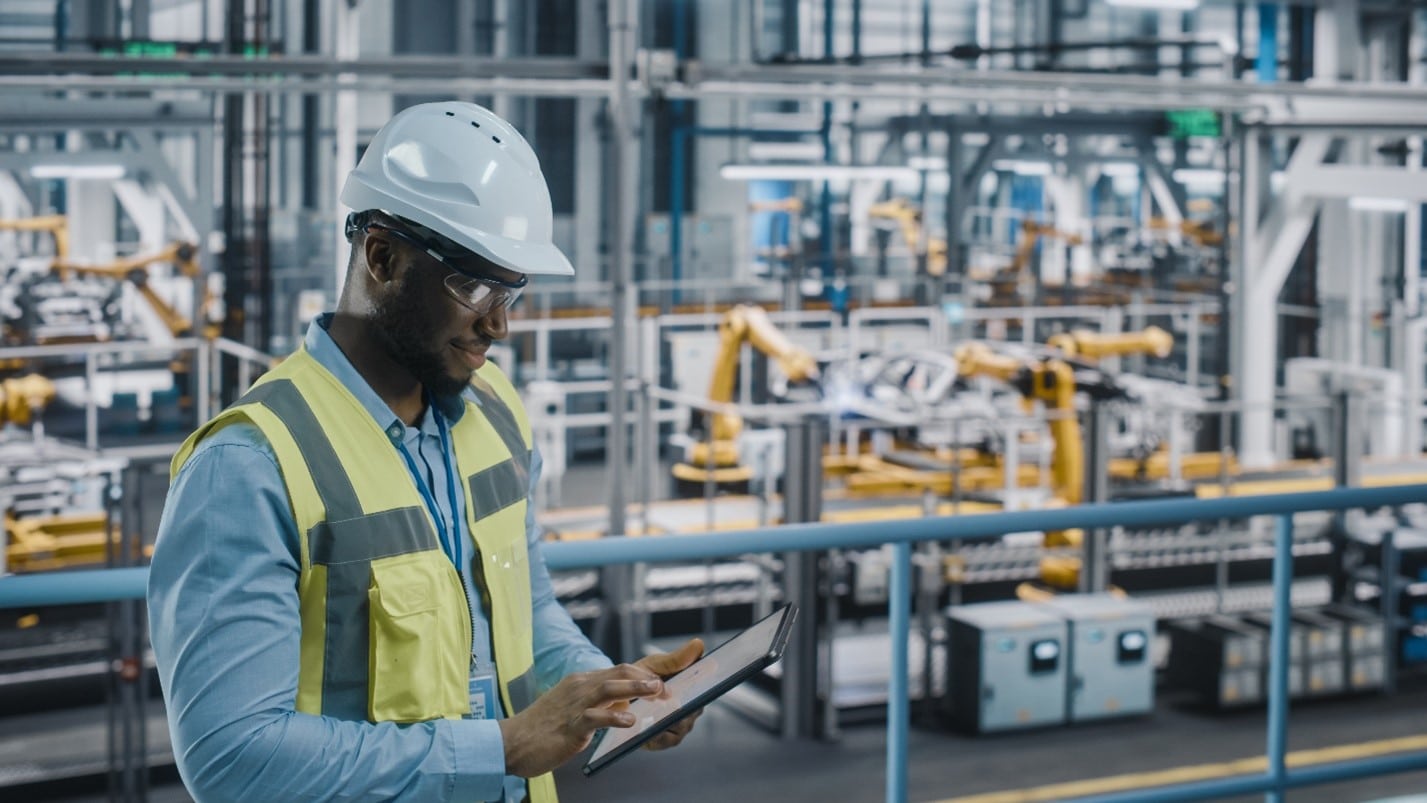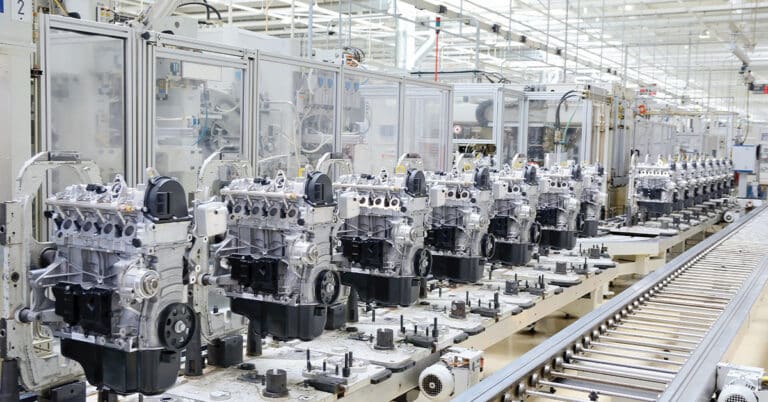Digital transformation is impacting manufacturers across every industry, and automotive manufacturing is no exception. As the “Industry 4.0” era of manufacturing and automation begins to enter its period of maturity and wider adoption, automotive digital transformation is becoming a critical need for manufacturers — not only to enhance their operations, but also to maintain a competitive edge in the field.
As automotive industry digital transformation gains a greater foothold across the sector, manufacturers are increasingly finding themselves in a position where if they do not adopt more advanced technology to keep pace with innovation throughout the field, they are at risk of losing ground to competitors in terms of productivity, efficiency, margins, and the price and service that they are able to offer to customers. Thus, the automotive smart factory is becoming a critical need in a business landscape where every avenue of potential efficiency must be pursued.
Technology-driven change
The technology driving digital transformation in automotive industry manufacturing represents a vast scope of enhancements to existing concepts such as automation, maintenance, data collection and more. Smart manufacturing in automotive industry applications also involves new — or newly applied — technology.
Examples of these technological advances include:
- An increase in autonomous equipment, such as collaborative robots in automotive manufacturing, which can create major benefits in efficiency while enabling personnel to focus on the highest-value tasks.
- Machine learning and artificial intelligence, after years of promise, are an integral part of automotive Industry 4.0 practices, drawing on data collection to enable the most effective and accurate predictive maintenance tactics.
- Cloud technology enables seamless wireless systems, with full connectivity throughout the facility and monitoring and control available from anywhere.
- Real-time performance sensor technology facilitates enhanced maintenance practices, including predictive maintenance, for complex automotive manufacturing systems where downtime or equipment failure presents significant risk of lost revenue.
Impact of industry 4.0 in automotive manufacturing capabilities
Industry 4.0 technology is driving unprecedented change in automotive manufacturing capabilities. These include:
- Welding digitization and data analysis: Digitized data enables visualization and troubleshooting of any potential weld issues in real time. The vast amount of data available, combined with high-speed wireless connectivity, can enable tools such as digital twin troubleshooting to facilitate innovation in solutions and preparedness for any situation that may arise. This can increase quality, reduce downtime and shorten production cycle times.
- Collaborative robots: Collaborative robots (cobots) are designed to work directly alongside human workers, fulfilling the most repetitive or dangerous components of critical tasks while technicians carry out higher-impact work that cannot be completed through automation. Collaborative robots are designed to be safe enough to operate on production lines or at assembly workstations without the need for separated robot areas.
- Automated storage and retrieval systems: Can facilitate more streamlined and efficient inventory, and are capable of automating the selection of the right components or vehicles to move into the general assembly line next.
These technological advancements contribute to higher overall quality assurance through more available data and real-time analytics and monitoring.
The industrial IoT in automotive manufacturing
The IIoT (Industrial Internet of Things) is ushering a new era of true full interconnectivity and communication, creating local networks of equipment for decentralized decision-making, as well as interconnected networks of departments and even entire facilities via the cloud, thanks to high-speed processing and 5G networks. Processes and equipment are constantly monitored in real time, and issues can be identified and addressed from anywhere — regardless of on-site location.
The benefits of industry 4.0 and increased digitization
The benefits of these technological advances are many. While they require an investment in updated equipment and facility infrastructure, they are poised to more than return on that investment. Industry 4.0 adoption is occurring more quickly than ever as features such as onboard, integrated wireless connections are becoming standard in new equipment purchases.
The benefits of the digital transformation in the auto industry include:
- Vastly increased uptime: Facilitated as a result of predictive maintenance, more data, increased monitoring capacity, and early detection and troubleshooting of potential issues.
- Faster cycle times: With real-time performance monitoring and analytics, equipment operators can make data-backed decisions on the fly, yielding incremental efficiency and speed benefits that can add up to material productivity increases over time.
- Agile development and production: As the products that consumers seek continue to evolve, the digital transformation for manufacturers enables a nimble, agile approach to accommodating capacity changes and fluctuating production needs, covering areas such as annual model updated, electric vehicles, autonomous vehicles and much more.
- Meeting the expectations of the new workforce: As younger workers enter the workforce, these digital natives are accustomed to digital interfaces, connectivity, remote access and other benefits enabled by Industry 4.0. A modern, innovative facility will help attract the best and brightest of the new generation of employees.
With decades of expertise in helping automotive manufacturers remain on the cutting edge of maintenance technology, ATS is ready to assist you with bringing your facility in line with these advances and more — enabling you to increase uptime, keep a competitive edge, and improve product quality and service for your customers. To learn more, contact us today.


